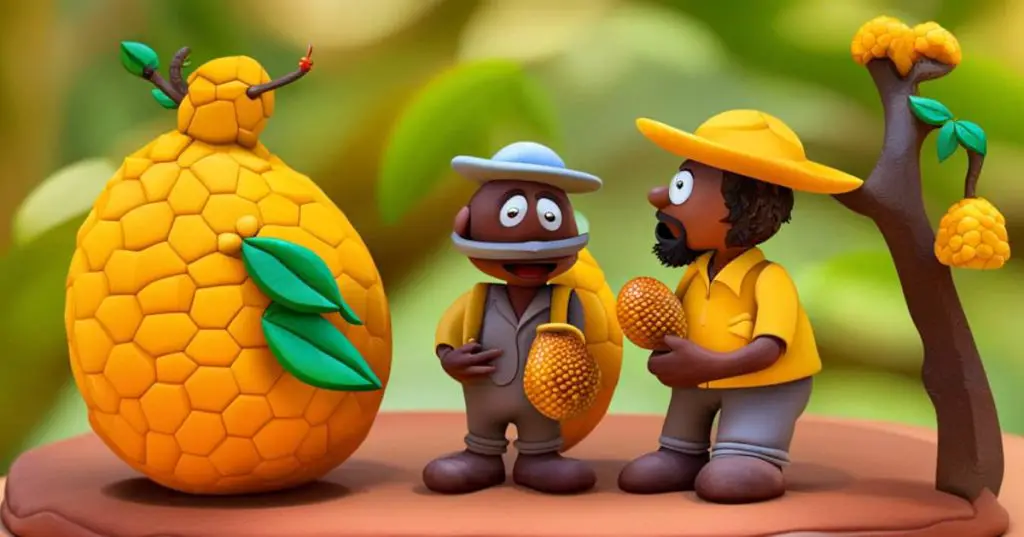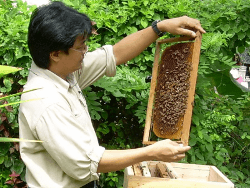
One of the important concepts in environmental economics or economic valuation is the concept of externalities. This concept may sound so sophisticated and complex to understand to the novice in environmental economics.
However, while teaching this concept to students, I realized that this is a very important concept that everyone must know to be able to come up with informed decisions. Understanding what externalities are and how they can be used in making the most of your decisions can make a difference between “the devil and the deep blue sea” as the popular adage on difficult decision situations says.
I narrate the story of the mango grower and the beekeeper to further make clear the concept of externalities.
Table of Contents
Externalities Defined
Externalities are those unexpected outcomes or third-party effects that may arise when someone makes a decision while making transactions with another entity. That entity may be a person, an organization, or a company.
Externalities are those unexpected outcomes or third-party effects that may arise when someone makes a decision while making transactions with another entity.
The classic story of the apple grower and the beekeeper can make the concept of externalities clearer. However, this is a temperate country example, so to put it in a context in tropical countries, I will relate the story of the mango grower and the beekeeper as a local context adapted version.
The Mango Grower and the Beekeeper
In a small island in the tropics, two farmers engaged in two different livelihood activities. The first man grows mango trees and produces mangoes for local consumption and exports these mangoes abroad. The other man, a beekeeper, rears bees in culture boxes for the same purpose, i.e., for domestic use and export.

These activities went on for several years. Both businesses thrived until the beekeeper noticed the bees are no longer bringing in a significant amount of nectar in the culture boxes. This phenomenon happened when the mango grower started to cut down trees in his farmland to make way for a road to facilitate the transport of mangoes from his growing export business.
Because of reduced honey production, the beekeeper stopped engaging in beekeeping because his income could no longer sustain his once-thriving business. Since the decline in honey production, he had to trim down the number of employees until he could no longer support even two of them.
Back to the mango grower, the farmer noticed a decline in mango production since his neighbor, the beekeeper, stopped his business operation. What could be the reason for this decline?
Is the mango grower’s business linked to that of the beekeeper’s honey production activities?
The mango grower, concerned that he might likewise stop his mango growing business like the beekeeper, sought a local university knowing that there are faculty members engaged in agricultural research. The university dispatched an experienced researcher to look into the plight of the mango grower (that person could be someone from the environmental science department). Determining the reason for the decline in mango production is the primary goal of the researcher.
According to the researcher, the beekeeper’s decision to stop his beekeeping operation affected the mango grower’s agricultural production because the bees pollinate the flowers of the mangoes. Since the mango grower decided to cut down some mango trees to make way for the road, the availability of nectar from these mango trees also declined.
Hence, less honey for the bees to collect to keep the beekeeper’s business going. And given less honey, fewer bees are able to survive. As a result, fewer pollinators are available for the mango trees.
Realizing his mistake, the mango grower decided to see the beekeeper and explain the scenario. They were both illuminated by the researcher’s explanation. The mango grower convinced the beekeeper to resume his business, and while doing so, he will compensate for the bees’ pollination services. He also assured the beekeeper that he would plant more mango trees to replace the number of lost trees. From then on, their businesses once again thrived, and they lived happily ever after.
The Externalities in the Story
There are the unexpected benefits that arose from their business operations. What are these benefits?
Two unexpected benefits are evident in the business operation of the two farmers. These are 1) the pollinating services of the bees, and 2) the mango trees’ flowers as a source of nectar.
Once these externalities are recognized and incorporated in decision making, these are now considered as internalized externalities. They no longer are considered externalities.
So when someone talks about internalizing the externalities, this refers to the incorporation of the third party effects in any transaction. This means that in the story, the mango grower internalized the externality of the pollinating services of the bees while the beekeeper also internalized the benefit of the mango’s flowers as source of nectar for the bees. There was a symbiotic relationship between them until the mango grower decided to cut down the trees, not knowing that doing so would not only affect the beekeeper but also himself as their operations are mutually dependent.
Conclusion
From this story and discussion, externalities therefore are the benefits, disadvantages, or third party impacts that may ensue as a result of any situation or transaction that affects the environment. Thus, to ensure sound decision-making and environmental sustainability, we need to internalize these externalities.
Externalities may be positive or negative. I illustrate both types of externalities in the gulf oil spill incident in Mexico several years ago that caused not only negative externalities but also positive externalities. Read this article to further strengthen your understanding of externalities.
Reference
Allen, A. S. (1949). Bees and the Fruitgrower. Bee World, 30(6), 46-48.
© 2013 November 3 P. A. Regoniel | Updated 06 March 2024



No Responses